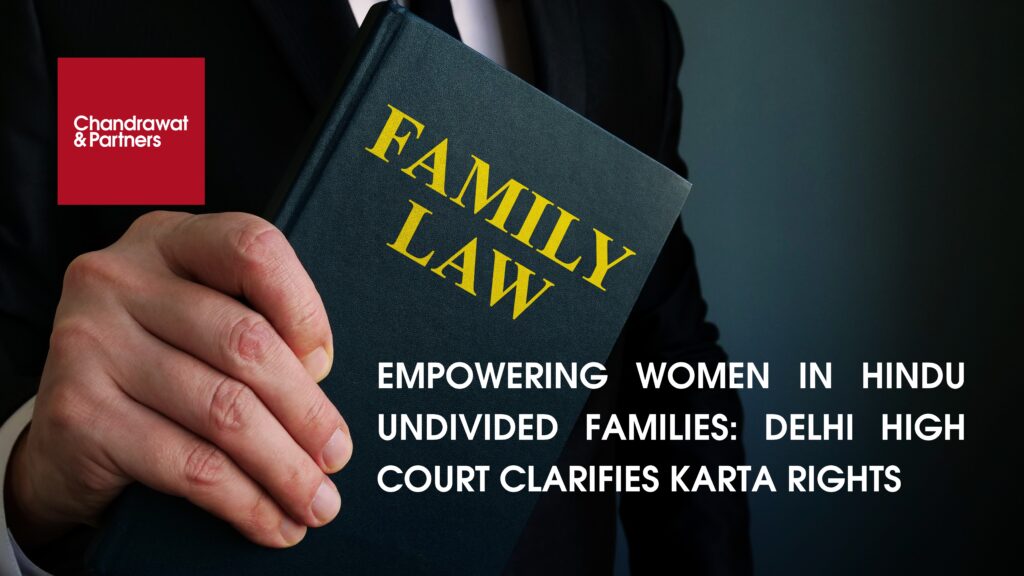
Share :
Introduction
In a significant legal development, the Delhi High Court, in the case of Manu Gupta v. Sujata Sharma & Ors. has delivered a landmark ruling emphasizing the equal right of women to act as Karta in a Hindu Undivided Family (“HUF”). The division bench, consisting of Justice Suresh Kumar Kait and Justice Neena Bansal Krishna, asserted that neither legislative provisions nor traditional Hindu Law restrict a woman’s right to assume the role of Karta within a HUF.
Legal Precedent and Societal Perceptions
Quoting Ruth Bader Ginsburg, the bench acknowledged the historical disinclination to accept women as Kartas, despite equal coparcenary rights conferred by the 2005 Amendment to the Hindu Succession Act (“Amendment Act”). The judgment emphasised that societal perceptions should not impede the rights expressly granted by legislation, asserting that such interpretations would be both anomalous and against the legislative intent.
Clarification on Legislative Intent
The court clarified that Section 6 of the 2005 Amendment Act explicitly grants women coparceners the right to be Kartas. Any interpretation suggesting otherwise, the court stated, would not only be anomalous but also run counter to the legislative objective behind introducing the amendment. The bench highlighted that a woman’s right to be a Karta encompasses the same rights as those conferred upon male coparceners.
Management and Coparcener Rights
While recognizing that a HUF cannot have two Kartas simultaneously, the court clarified that another coparcener can perform managerial duties in certain circumstances. The judgment underscored that the rights of coparceners remain unaffected when a female coparcener assumes the role of Karta. Coparceners continue to enjoy the same entitlements and interests, with adequate remedies available if concerns arise about the management by a female Karta.
Rejecting Parochial Mindsets
Addressing the contention that the husband of a female Karta might indirectly control HUF activities the court dismissed it as a “parochial mindset.” The judgment highlighted legislative attempts, such as Section 14 of the Hindu Succession Act 1956, to eliminate such mindsets and empower women with absolute ownership rights. It firmly stated that societal apprehensions should not undermine legislative efforts to eradicate patriarchal discrimination.
Conclusion
The Delhi High Court’s ruling in Manu Gupta v. Sujata Sharma & Ors. is a watershed moment for gender equality within Hindu Undivided Families. By clarifying the unequivocal right of women to be Kartas and rejecting entrenched societal biases, the court has reinforced the legislative intent behind the 2005 Amendment Act. This landmark decision sets a progressive precedent, promoting gender inclusivity and dismantling barriers that have historically relegated women to secondary roles within familial structures.
Our firm recognizes the significance of this ruling in shaping family law dynamics and remains committed to providing informed legal insights on evolving jurisprudence. As we celebrate strides toward gender equality, this decision underscores the ongoing legal journey towards empowering women in diverse aspects of life.
For more information or queries, please email us at
enquiries@chandrawatpartners.com



